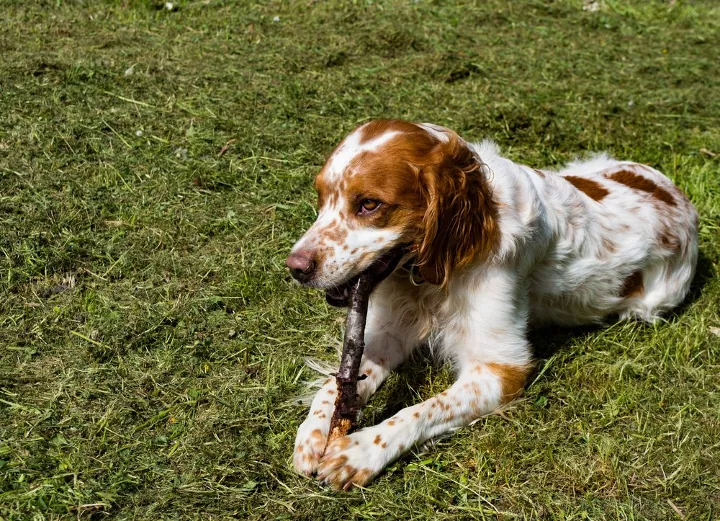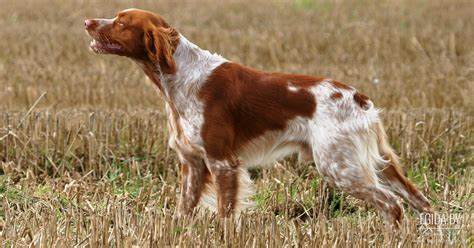French Spaniel: Graceful and Versatile Gun Dog of France

History of the French Spaniel
The French Spaniel (Épagneul Français) is one of the oldest continental hunting dogs, with roots tracing back to medieval France, where it was favored by nobility for falconry and bird hunting. This elegant spaniel evolved over centuries as a versatile pointer and retriever, adept at working in forests, wetlands, and open fields.
By the 19th century, the breed's numbers declined due to the rise of English hunting dogs, but it was revived in the early 1900s thanks to the efforts of Father Fournier, a French priest and breed enthusiast who helped preserve and standardize the breed. Today, the French Spaniel is recognized by the Fédération Cynologique Internationale (FCI) and the Canadian Kennel Club, though it remains rare outside France and Canada.
Popularity of the French Spaniel
While still considered a rare breed, the French Spaniel has gained attention in North America and parts of Europe for its intelligence, athleticism, and affectionate personality. Hunters, outdoorsy families, and dog sport enthusiasts are drawn to the breed's natural versatility and calm demeanor.
Physical Traits of the French Spaniel
The French Spaniel is a large, elegant, and well-balanced sporting dog, with a graceful stride and noble appearance.
• Coat: Medium-length, dense, and slightly wavy with feathering on the ears, legs, chest, and tail.
• Color:
o White with brown markings, often roan or ticked.
• Size:
o Height: 21.5–24 inches (55–61 cm)
o Weight: 45–60 lbs (20–27 kg)
• Head & Expression: Refined head with a slightly domed skull, long muzzle, and warm, intelligent eyes.
• Ears: Long, pendant, and feathered—set at eye level and slightly curled at the ends.
• Tail: Long, feathered, and carried in a gentle curve.
• Body: Athletic and well-proportioned—strong but elegant, ideal for long days in the field.
Behavioral Traits of the French Spaniel
The French Spaniel is prized for its gentle temperament, keen hunting drive, and people-oriented nature.
• Intelligent and Trainable: Quick learner that enjoys pleasing its handler—responsive and cooperative.
• Calm and Mellow Indoors: Unlike many sporting dogs, the French Spaniel can be relaxed and quiet in the home.
• Energetic Outdoors: Enthusiastic and driven when working—excels in pointing, flushing, and retrieving.
• Affectionate and Loyal: Forms deep bonds and is excellent with children and other pets.
• Social and Friendly: Not shy or aggressive—confident with strangers when well socialized.

Why Choose a French Spaniel?
This breed is ideal for those looking for a versatile, family-friendly hunting companion with a balanced temperament.
• Excellent Dual Purpose Dog: Suited for both field work and family life.
• Moderate Energy Indoors: Not overly rambunctious—adaptable to different home environments.
• Great with Kids and Animals: Sociable and tolerant—a gentle breed with strong empathy.
• Easygoing but Focused: Calm at home but determined and tireless in the field.
• Natural Beauty: Elegant movement and feathered coat give the French Spaniel a refined appearance.
Caring for Your French Spaniel
The French Spaniel thrives with consistent activity, gentle training, and family companionship.
• Training:
o Responds well to positive, consistent training methods.
o Early exposure to field work or dog sports is beneficial.
• Exercise:
o Requires 60–90 minutes of daily activity—ideal for active families or rural homes.
o Enjoys hunting, hiking, swimming, and interactive play.
• Grooming:
o Brush 2–3 times a week to manage feathering and reduce shedding.
o Regular ear cleaning and nail trimming recommended.
• Nutrition:
o Balanced, protein-rich diet for sporting breeds—adjust for activity level.
• Companionship:
o Not a kennel dog—needs to live indoors and be part of the family.
o May suffer separation anxiety if left alone too often.

Health Considerations
The French Spaniel is generally a hardy and healthy breed, with a lifespan of 12–14 years. Common health concerns may include:
• Hip Dysplasia
• Ear Infections (due to floppy ears)
• Bloat (gastric torsion)
• Eye Conditions (rare)
Choose breeders who conduct health testing and follow best breeding practices.
Comparisons to Other Sporting Breeds
Compared to the English Springer Spaniel, the French Spaniel is larger and more mellow indoors. It’s less intense than a German Shorthaired Pointer, but just as trainable and affectionate. Its gentler, steadier personality makes it ideal for those who want a reliable field companion with less hyperactivity.
Is the French Spaniel Right for You?
If you're looking for a balanced dog that is both a skilled sporting companion and a gentle family member, the French Spaniel is a perfect choice. It’s best for owners with time for exercise and interaction, and those who appreciate a dog that’s both graceful and dependable.
It may not suit sedentary homes or those seeking a low-shedding or hypoallergenic breed.
Ready to Welcome a French Spaniel?
United Pet Club can help you explore the unique charm of the French Spaniel, offering resources on finding breeders, raising a healthy pup, and getting started in training or field work. Whether you're in the woods or on the couch, this dog will be right by your side with a wagging tail and gentle eyes.
